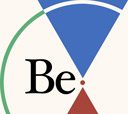
January
The human being is made of three distinct parts, each a body in its own right. Each of us has a physical body, an essence that animates that body and a personality. When we are born, these three independent bodies come together and remain together for the duration of our lives; they separate at the moment of our death. Although forced to cohabit, each nonetheless remains distinct, with its own impulses, needs and desires. Each is sensitive to different stimuli and is subject to different constraints. As long as we navigate through life without understanding that human psychology is group psychology, we always address the needs of one body at the expense of the other two. In this way we find ourselves as a farmer with fine grains but arid soil, unable to make bread. To understand who we are, we must understand the characteristics of our physical body, essence and personality.
At first glance, the characteristics of the physical body seem obvious: one person is tall and another short; one is quick, another slow; one has darker skin, another lighter. But, along with these obvious traits we have many more subtle differences, also rooted in the physical body, that influence our psychology. We must study these in detail.
Essence is the vital force that animates our physical body. According to this teaching, this force is more than life-energy; it contains the seeds of the tendencies and talents that make us unique. One person is drawn to nature, while another excels in languages, and a third is especially sensitive to people. These, and many other such inborn differences, are traits of essence.
Personality begins forming shortly after birth, in response to the demands of life. Essence can never naturally conform to the expectations of those around us, or to the culture and times in which we were born and so we are forced to adapt and to coat essence with personality as a protective layer. This coat becomes heavier as we conform to expectations and are assimilated into society, primarily through imitation and education. This adaptation is indispensable and beneficial for our proper functioning in the world but only as long as it is kept in balance with the physical body and essence.
Such a balance, however, never happens naturally. Body, essence, and personality never develop in harmony. One always grows at the expense of the other two. Most commonly, personality grows beyond its original utility as a protective coat and gains a life of its own, becoming so thick that it arrests the development of essence. Our body continues aging, our personality continues projecting maturity, but our essence remains infantile. As a result, we appear adult while remaining inwardly timid and insecure. In many cases, essence is choked off for so long that it enters a kind of coma and no longer plays an active role in our lives. In other cases, though subdued, its suffering calls through the thick coat of personality as a faint cry of conscience. We feel imprisoned in our own artificiality. Our past is a trail of pretense; our future seems to be headed nowhere. We experience a strong impulse to do something about our condition right now, before it is too late.
This mysterious impulse can manifest from the essence of a person of any race, gender, or age. It is an emotional impulse, an urge that can remain formless for a long time. To act on it, we must give it form, and we do so by tackling the question, What do I want? Although we have three different bodies and therefore, three different wills, we are accustomed to asking this question of only the body or personality. The body wants comfort and happiness and will express its desires accordingly. Personality wants reassurance and recognition and will interpret improving our condition by its own standards. What does our essence want? What draws us to this work? Can we catch the muffled voice calling to us from under the thick layer of personality, and give it form? This is the first step of inner farming.
Our teaching
The Old New Method

February
Self-Observation
